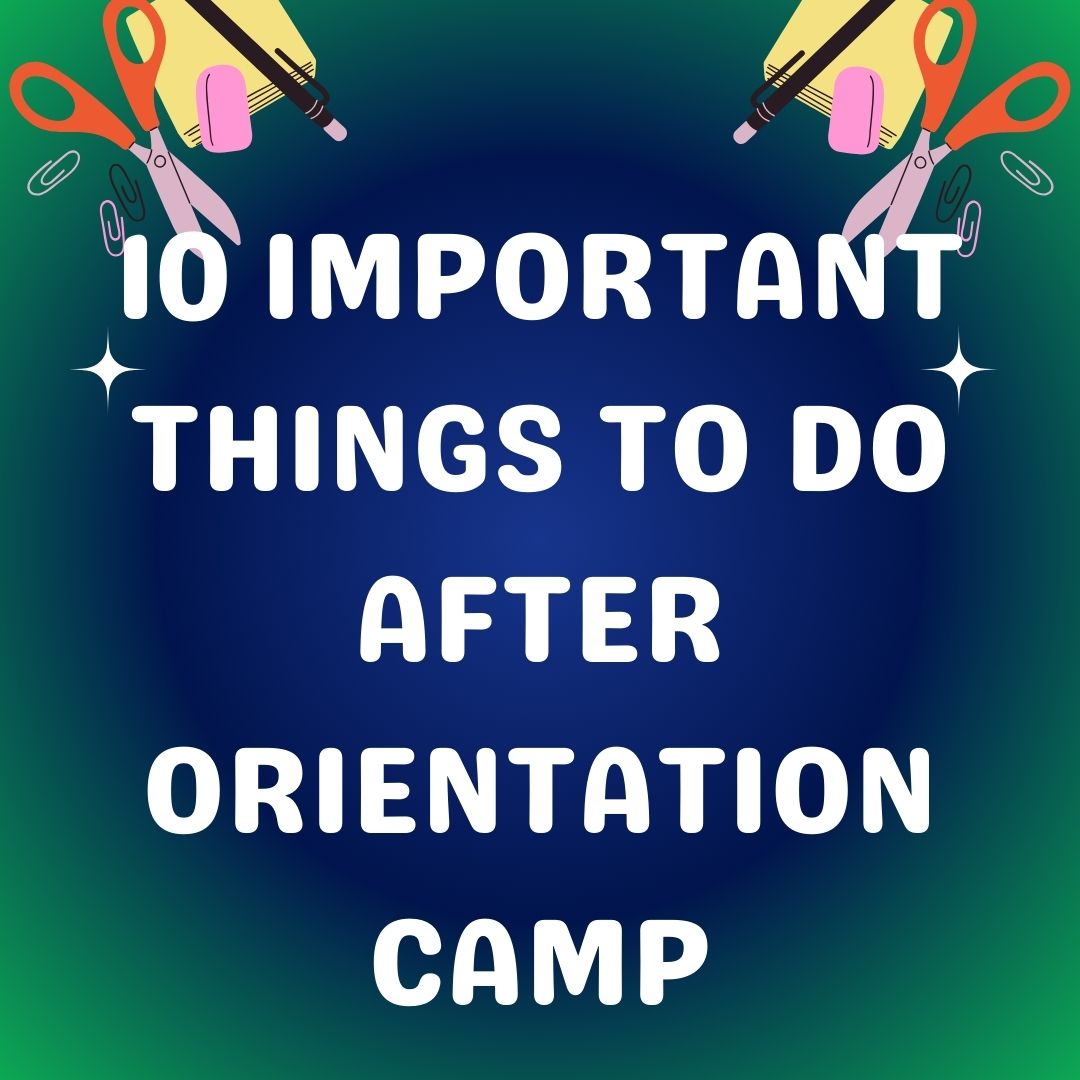Orientation camps, whether for college, a new job, or a community program, are designed to acclimate participants to new environments, people, and expectations. After the flurry of activities and the influx of information during orientation, it’s crucial to take deliberate steps to integrate this new phase into your life effectively.
Advertisements
Here are ten important things to do after orientation camp to ensure a smooth transition and long-term success.
1. Reflect and Take Notes
Advertisements
Immediately after the camp, take some time to reflect on your experience. Write down key takeaways, important contacts, and any instructions or advice that were given. This helps solidify what you’ve learned and makes it easier to refer back to important information.
2. Organize Your Information
Compile all the materials you received during the camp—brochures, handouts, schedules—into a dedicated folder or digital file. Organize these documents so you can easily find important information when needed. Creating a system early on prevents future confusion and ensures you stay informed.
3. Reach Out to New Contacts
Networking is a significant part of any orientation. Follow up with new acquaintances, be they fellow participants, mentors, or facilitators. Connect on professional networks like LinkedIn, send follow-up emails, or plan meet-ups. Building these relationships early can provide support, collaboration opportunities, and valuable advice.
4. Set Goals
Establish clear, achievable goals based on what you learned during orientation. Whether it’s academic targets, career milestones, or personal development objectives, having specific goals will guide your actions and keep you motivated. Break these goals into manageable tasks to track your progress effectively.
5. Familiarize Yourself with Resources
Orientation camps often introduce participants to a range of resources—libraries, counseling services, career centers, or online portals. Take time to explore these resources in detail. Knowing where to find help when you need it is crucial for navigating challenges smoothly.
6. Create a Schedule
Adjusting to a new routine can be challenging. Develop a schedule that includes all your responsibilities and activities. Factor in time for classes, work, social activities, and self-care. A well-structured schedule helps manage time efficiently and reduces stress.
7. Engage in the Community
Get involved in community activities, clubs, or organizations related to your new environment. Participation in extracurricular activities enhances your experience, builds a sense of belonging, and helps develop new skills. It’s also a great way to meet like-minded individuals.
8. Stay Organized
Good organization extends beyond paperwork. Keep your living and workspaces tidy and functional. Use planners, apps, or other tools to stay on top of deadlines and commitments. An organized environment fosters productivity and minimizes the risk of overlooking important tasks.
9. Seek Feedback and Guidance
Don’t hesitate to ask for feedback on your performance or for guidance on how to improve. Whether from peers, supervisors, or mentors, constructive criticism is invaluable. It helps you identify strengths and areas for improvement, ensuring continuous personal and professional growth.
10. Maintain a Healthy Balance
Balancing new responsibilities with personal well-being is crucial. Prioritize self-care by maintaining a healthy diet, exercising regularly, and ensuring adequate sleep. Managing stress through mindfulness practices or hobbies can also enhance overall well-being. Remember, a healthy mind and body are essential for long-term success.
Conclusion
Transitioning from an orientation camp to your new environment can be overwhelming, but with the right approach, it can also be a rewarding experience. By reflecting on your experience, organizing information, networking, setting goals, familiarizing yourself with resources, creating a schedule, engaging in the community, staying organized, seeking feedback, and maintaining a healthy balance, you set yourself up for success. These steps will help you navigate this new phase with confidence and ease, ensuring a positive and productive journey ahead.
Related
Advertisements
